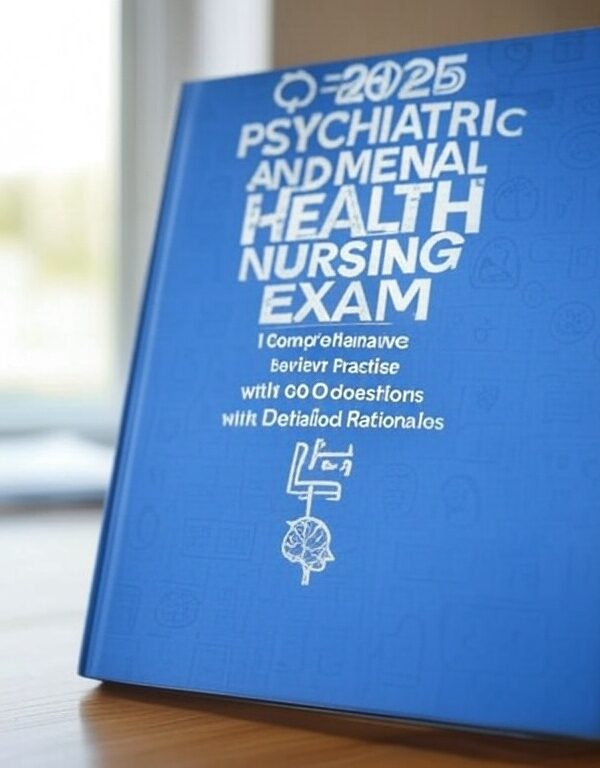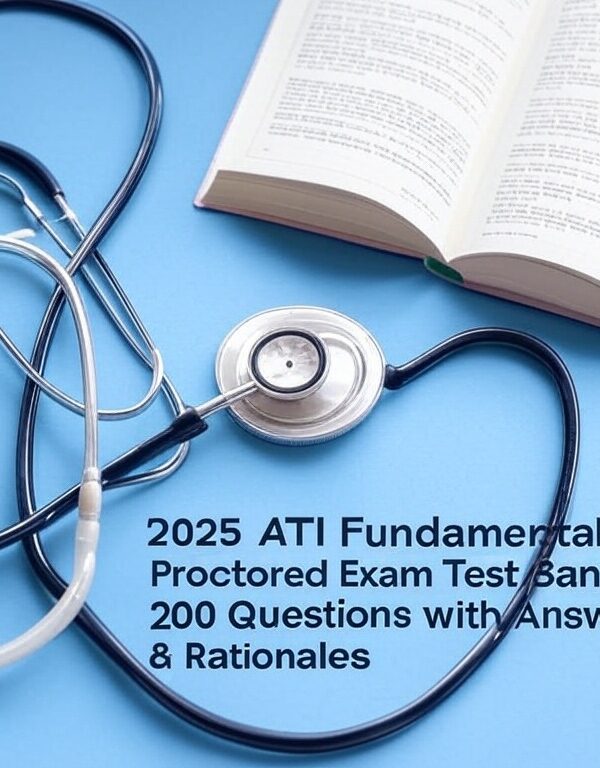-
Ultimate study guide for ATI Med-Surg 2025
-
100 real practice questions with detailed rationales
-
Focuses on medical-surgical nursing concepts
-
Designed for nursing students preparing for the proctored exam
-
Boosts critical thinking and exam readiness
Preview
1. Dehydration in Gastroenteritis
Question:
A nurse is caring for a client who has gastroenteritis. Which of the following assessment
f
indings should the nurse recognize as an indication that the client is experiencing
dehydration?
Options: a. Pitting, dependent edema
b. Distended jugular veins
c. Increased BP
d. Decreased BP ✅
Rationale:
Dehydration leads to a reduced circulating blood volume, which results in hypotension
(low blood pressure). This is a classic indicator, especially in patients with fluid loss
such as from vomiting or diarrhea due to gastroenteritis.
2. IV Medication for Diabetes Insipidus
Question:
A nurse is caring for a client who has a contusion of the brainstem and reports thirst.
The client’s urinary output was 4,000 ml over the past 24 hours. The nurse should
anticipate a prescription for which of the following IV medications?
Options: a. Desmopressin ✅
b. Epinephrine
c. Furosemide
d. Nitroprusside
Rationale:
High urine output and excessive thirst are signs of diabetes insipidus, commonly
associated with brain injuries. Desmopressin is a synthetic form of antidiuretic
hormone (ADH) and is used to treat this condition by reducing urine production.
3. ACE Inhibitor Cough
Question:
A nurse in a clinic receives a phone call from a client who recently started therapy with
an ACE inhibitor and reports a nagging dry cough. Which of the following responses by
the nurse is appropriate?
Options: a. “Your cough may require that you stop or change your medication.” ✅
b. “Increasing your daily fluid intake may eliminate your cough.”
c. “Sucking on lozenge may reduce the frequency of your cough.”
d. “Your cough should go away in time.”
Rationale:
A persistent dry cough is a common side effect of ACE inhibitors due to the
accumulation of bradykinin. This may warrant discontinuing or switching to another
class of medication like ARBs.












Reviews
There are no reviews yet.